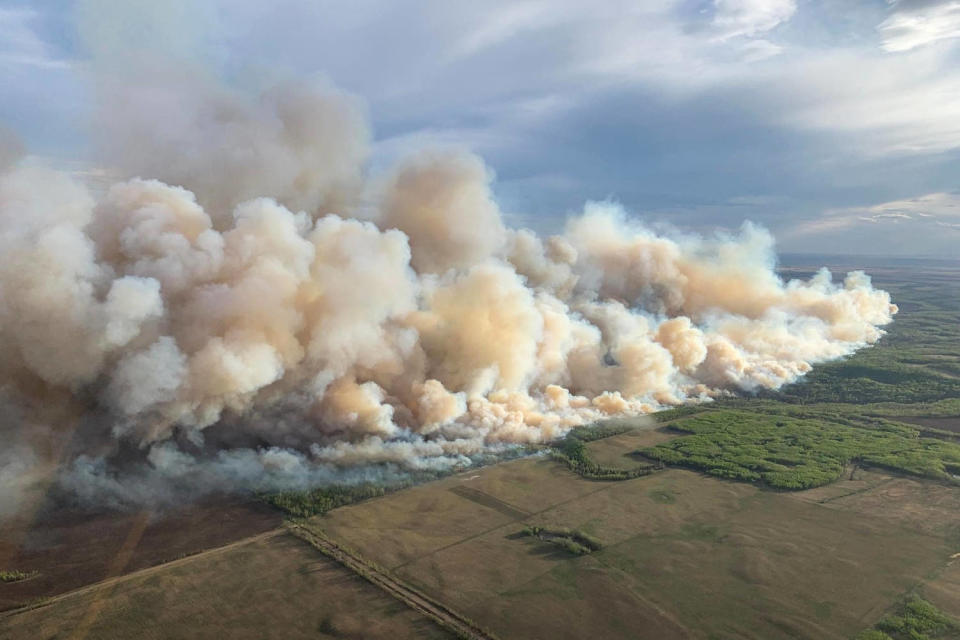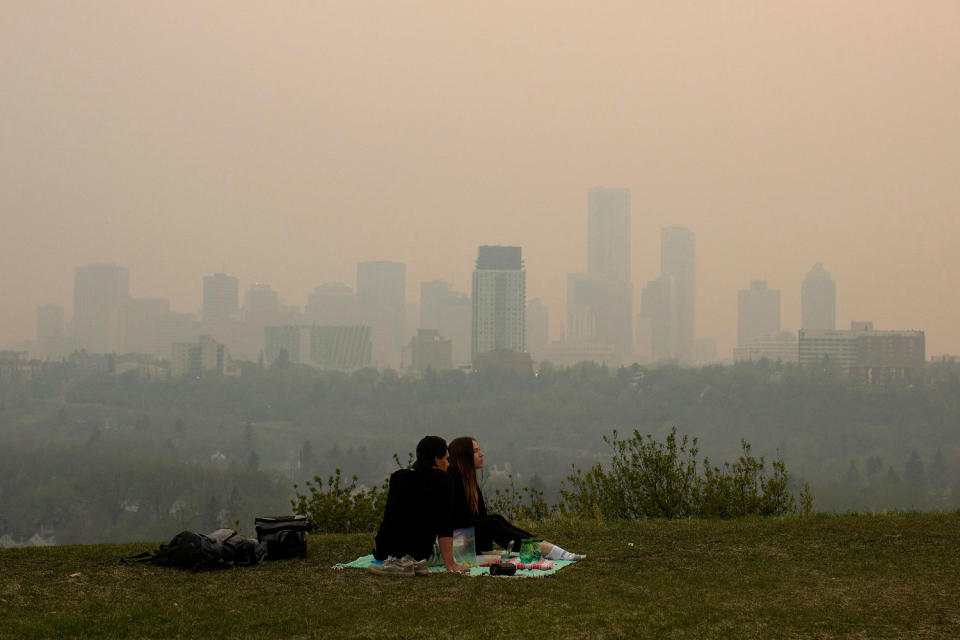Hazy conditions blanketed parts of four US states on Monday, while smoke from wildfires in western Canada triggered air quality alerts and warnings.
Canada has 146 active wildfires, including dozens in British Columbia and Alberta that are characterized as “out of control.” according to the Canadian Interagency Wildfire Center.
In the United States, warnings were in effect in Montana, North Dakota, South Dakota and Minnesota as winds carried plumes of smoke over the region.
The Minnesota Pollution Control Agency issued an air quality alert on Sunday in response to a “very intense swath of smoke coming from wildfires in northeastern British Columbia.”

The agency said the northern half of the state has now cleared, but “smoke will remain in southern Minnesota on Monday as northerly winds become light during the day.”
O air qquality Iindex Monday showed conditions in the four states ranging from “moderate” to “unhealthy” for the general public. The index was established by the US Environmental Protection Agency to measure daily air pollution levels and communicate associated risks.
Air pollution from wildfires is closely monitored because tiny particles in smoke less than 2.5 micrometers in diameter – about 4% of the diameter of an average human hair – are small enough to reach the interior of lungs.
Exposure to this type of particulate pollution can cause inflammation and weaken the immune system, and can also exacerbate or increase the risk of asthma, lung cancer and other chronic lung diseases. Elderly people, babies, children and pregnant women are most vulnerable when air quality worsens.
The air quality index measures pollution from small particles, called PM2.5, along with four other main pollutants: tropospheric ozone, carbon monoxide, sulfur dioxide and nitrogen dioxide.


The fires have consumed more than 24,000 acres in western Canada, marking the first series of major wildfires this season.
On Sunday, authorities issued an evacuation order for thousands of residents in the Northern Rockies Regional Municipality and Fort Nelson First Nations in British Columbia because of fast-moving flames.
Last summer, smoke from forest fires in Quebec covered large portions of the U.S.causing air quality levels to plummet in cities from the Midwest to the East Coast.
Canada experienced most devastating wildfire season in recorded history last year, with more than 45 million acres burned, according to the Canadian Interagency Wildfire Center.
The country is once again bracing for a season of increased fire risk.
The Canadian government said Friday that dry conditions “are expected to persist in high-risk regions into May,” increasing the “risk and intensity of natural and human-caused wildfires.”
Studies have shown that climate change is creating hotter conditions that can more easily dry out vegetation, a key ingredient in starting and spreading wildfires. As such, forest fires are expected to be more frequent and more intense in a warming world.
This article was originally published in NBCNews. with































